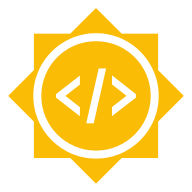In 2023, OpenStreetMap will participate once more as a mentoring organization in Google Summer of Code, a program to bring new contributors into Open Source software development. Originally targeted at students, the program now also accepts people new to Open Source in general.
We particularly welcome potential participants who are already involved with OpenStreetMap. You ideally have done some mapping and had an opportunity to get to know the community. You have used some of the software around OpenStreetMap and would now like to get involved in its development.
With the support of an experienced mentor, you will, over the course of a few months, add features to one of the Open Source tools which power the OSM ecosystem. Your work will improve software used daily by the OSM community, and Google will provide you with an attractive stipend for the summer. You will find more information about the program in general on the Google Summer of Code 2023 website.
Because of OSM’s diverse software ecosystem, you can choose from projects involving a variety of tools, technologies and programming languages. OSM tools planning to participate this year include editing software such as iD or JOSM, routing software such as OSRM or Valhalla, and the Nominatim search engine.
Applications are open March 20 to April 4 – but please get in contact with your mentors early so you can use the chance to improve your application. Visit our GSoC 2023 wiki page to learn what we’re looking for and browse our project ideas.
→ Learn more about GSoC 2023 with OSM
The OpenStreetMap Foundation is a not-for-profit organisation, formed to support the OpenStreetMap Project. It is dedicated to encouraging the growth, development and distribution of free geospatial data for anyone to use and share. The OpenStreetMap Foundation owns and maintains the infrastructure of the OpenStreetMap project, is financially supported by membership fees and donations, and organises the annual, international State of the Map conference. Our volunteer Working Groups and small core staff work to support the OpenStreetMap project. Join the OpenStreetMap Foundation for just £15 a year or for free if you are an active OpenStreetMap contributor.

